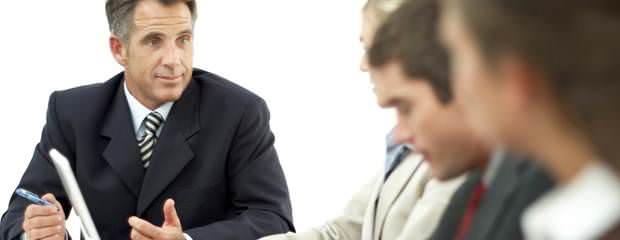
Ed Vulliamy remembers
Observer writer Ed Vulliamy was living in Manhattan when the World Trade Centre was attacked on 11 September 2001. Ten years on he recalls the extraordinary spirit of the devastated city as it responded with shock, tenderness and heroic camaraderie
'I think you'd better wake up," said a voice in my left ear. "The World Trade Centre's on fire." It was very decent of my partner to stir me. I had stayed out late in my local, Johnny's Bar, afterwards a New York Yankees game against the Chicago White Sox had been rained off and gone to sleep on the sitting room sofa, clothed, which was just as then. Because within 30 seconds, we were both down on the corner of my block where West 11th Street crosses 6th Avenue, to behold what looked like the world's end: the last burst of flame, as a plane cut into the south tower of the World Trade Centre, and black smoke billowed from the inferno of the northernmost edifice. People were on the whole eating eggs benedict at the sidewalk tables outside French Roast on the corner. Nikko's, the splendid newsagent, was open for business as usual, as was Ray's Original Pizza across the avenue. However 20 blocks south was this inexplicable, horrendous spectacle. People stared without knowing what to do or say - traffic must have stopped because we stood in the middle of the road. We went into New World Coffee, bought cappuccino and, clutching our drinks, walked instinctively and briskly down the empty street towards the now burning towers, saying - as I recall - nothing, for there was nothing meaningful to say. At the time, such as we crossed Grand Street, the unthinkable happened.
The first things I did
One of the first things I did was to make a call from a public phone some four blocks from the wreckage, which - unlike our cellphones - was working. There were two others in the queue to use it, a lady who had arrived late for work and thereby been spared her life, and a suited man shaking and covered in dust, who said only: "What is this? What is this?" I made calls to this newspaper and the mother of my children. Everywhere, people were running - some had blood streaming from cuts to their heads - during others simply gawped, rubbed their eyes, wiped the dust from their faces.
Then something interesting happened: secret servicemen moved towards the truck, to remove Beckwith nevertheless were stopped by none other than Karl Rove, Bush's image-maker and closest aide, who had already seen in his mind's eye what was about to happen. Someone thrust a megaphone into Bush's hand and he embarked on a version of the pedestrian speech he had been making all week - "America today is on bended knee in prayer" - heading for rhetorical disaster.
By Saturday, the flag was everywhere. Old Glory had made its debut appearance, unforgettably, on 11 September itself, hoist in a landscape smothered by the dust of death by three firemen on to a fallen antenna which had only hours beforehand stood at the apex of the north tower. It was a simple, instinctive gesture, charged with defiance and mourning. While New York's week, the flag became a bandana, a wristband, T-shirt or mini-skirt. Even the venerable New York Times printed flags across entire pages for fixing to windows. Flying the flag in New York that week said many things: it expressed grief, it was a flag of mourning, replacing black armbands or ribbons, of which I saw none - they were included in the Stars and Stripes. The flag was as well a way of saying that the city was aware, every second, that as many as 6,000 of its citizens could be buried down there, beneath the rubble.
The workers were the salt of the earth
Most of the workers were the salt of the earth, decent ironworkers, construction workers and welders from America's ravaged industrial heartlands - Ohio, Illinois, Michigan - come to cut through the tangled steel and rubble in the heart of New York, clear the devastation, dig into the death chambers and help in the recovery of body parts. A man called Mike Ledson at a cook-out organised by friends on Reade Street told how he dreaded calling his son in Harrisburg, Pennsylvania, each night, because he would always ask: "Dad, did you save anyone today?"
In a bizarre twist, certain songs were banned on radio, out of respect. They were a strange collection: "Ticket to Ride" by the Beatles, "On Broadway" by the Drifters, "What a Wonderful World" by Louis Armstrong. And, more ominously than strangely, radio stations were told that the entire oeuvre of Rage against the Machine was to be considered "questionable"- a diktat so outrageous that the estimable guitarist Tom Morello was obliged to put out a statement saying that the band are "diametrically opposed to the kind of horrible violence committed against innocent people if our songs are 'questionable' in any way, it is that they encourage people to question the kind of ignorance that breeds intolerance - intolerance which leads to censorship and the extinguishing of our civil liberties, or at its extremes can lead to the kind of violence we witnessed last week". We made a point of playing Morello's music at high volume, with the windows wide open. Attacks on Muslims began around America, some of them fatal.
- ·
New York Plane Ticket
- · Rackspace debuts OpenStack cloud servers
- · America's broadband adoption challenges
- · EPAM Systems Leverages the Cloud to Enhance Its Global Delivery Model With Nimbula Director
- · Telcom & Data intros emergency VOIP phones
- · Lorton Data Announces Partnership with Krengeltech Through A-Qua⢠Integration into DocuMailer
